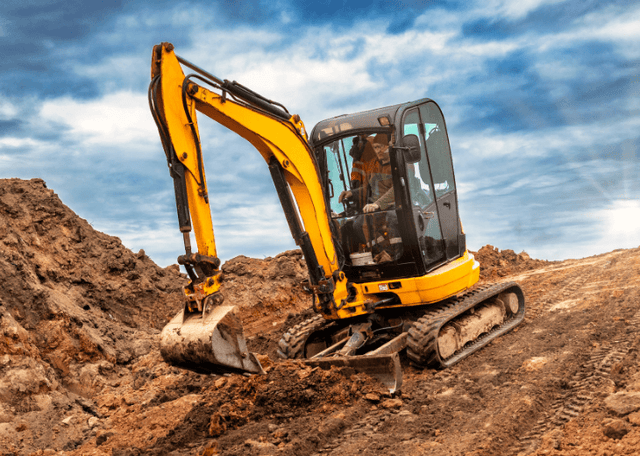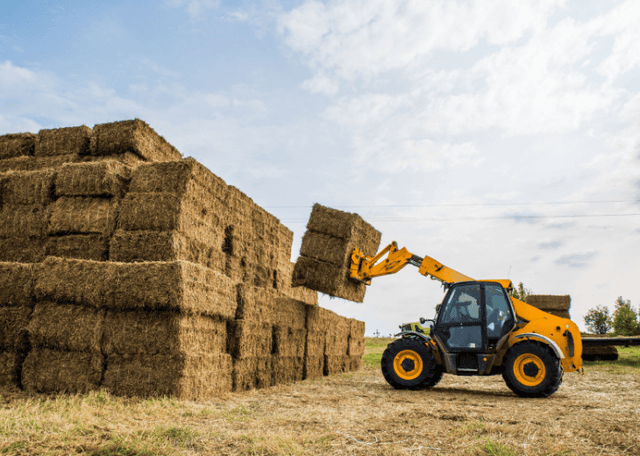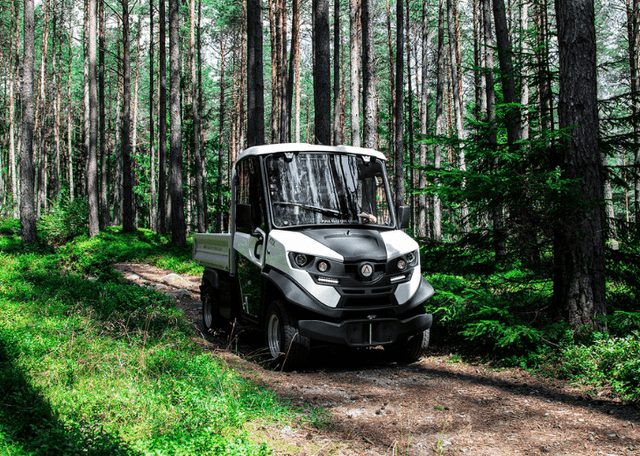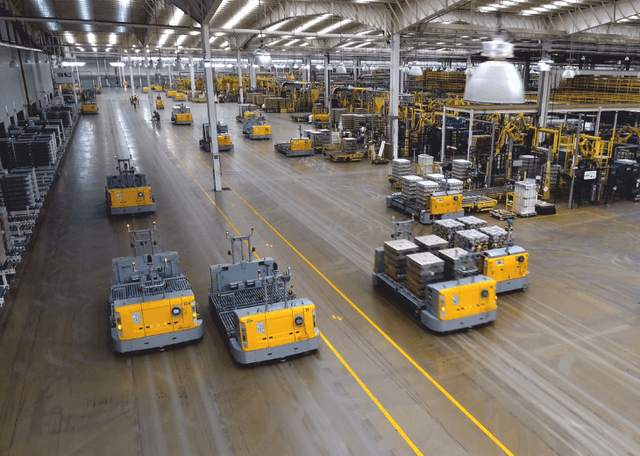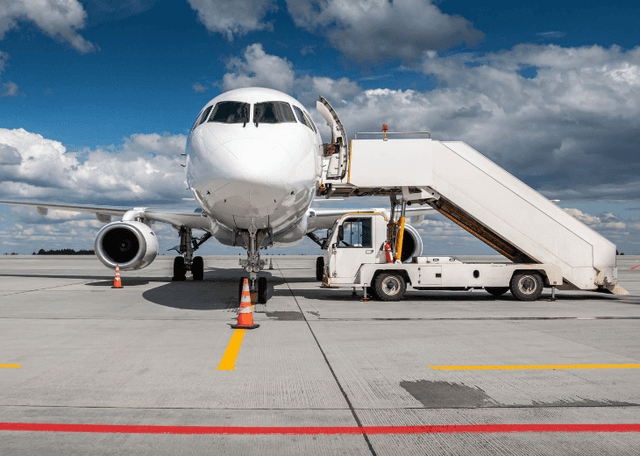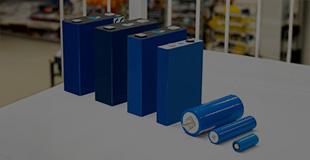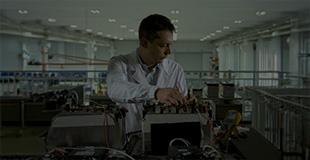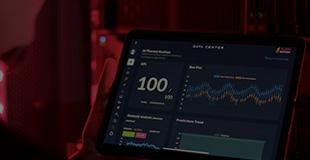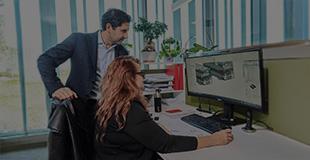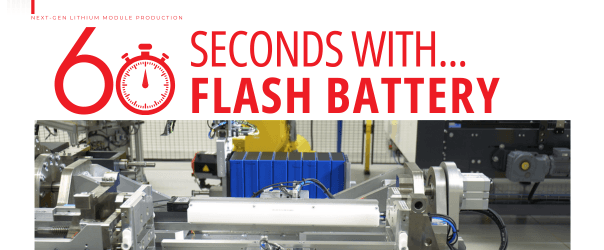
Ground Handling International
60 Sekunden mit Flash Battery
Marco Righi, interviewt von Ground Handling International, spricht über die neue automatisierte Linie von Flash Battery zur Modulfertigung mit Laserschweißen.
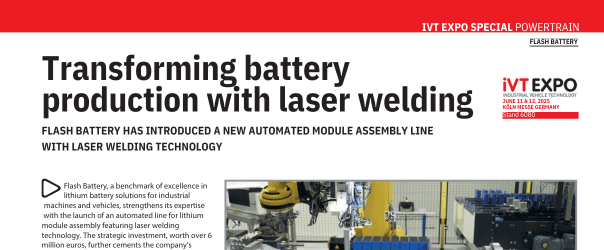
ivt international
Die Batterieproduktion mit Laserschweißen revolutionieren
Die Produktionskapazität von Flash Battery steigt dank der neuen automatisierten Laserschweiß-Produktionslinie auf 90.000 Module pro Jahr. iVT berichtet darüber.
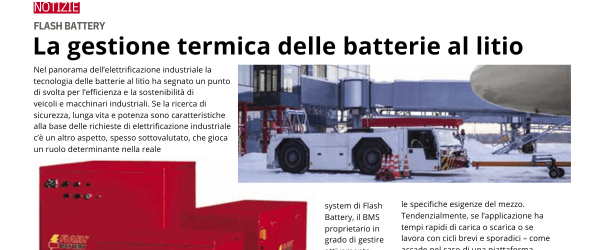
OnSite Construction
Thermisches Management von Lithiumbatterien
Flash Battery erläutert OnSite die Vorteile des Thermomanagements einer Batterie und wann der Einsatz eines Heiz- oder Kühlsystems unerlässlich ist.
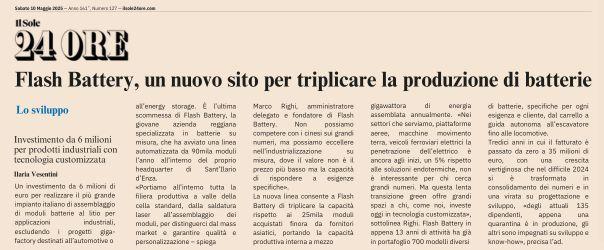
Il Sole 24 ore
Flash Battery, ein neuer Standort zur Verdreifachung der Batterieproduktion
Flash Battery eröffnet eine neue automatisierte Linie zur Modulmontage mit Laserschweißtechnologie und holt die Modulentwicklung ins eigene Haus
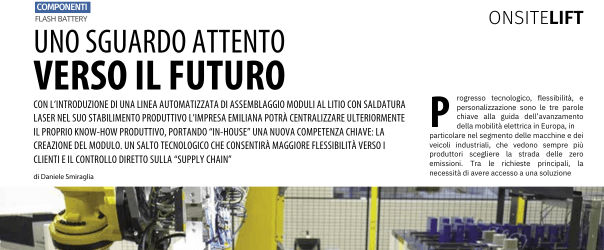
OnSite Lift
Ein vorausschauender blick in die zukunft
Flash Battery startet seine neue automatisierte Montagelinie für Module mit Laserschweißung und zentralisiert damit sein gesamtes Produktions-Know-how im eigenen Haus.
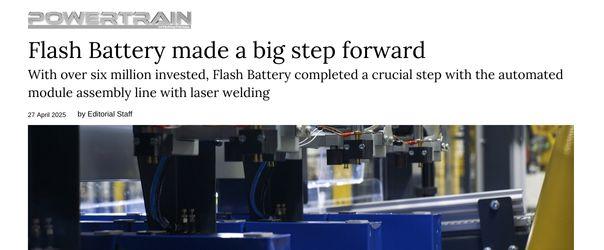
Powertrain International
Flash Battery hat einen großen Schritt nach vorne gemacht
Mit über sechs Millionen investiert, hat Flash Battery einen entscheidenden Schritt mit der automatisierten Modul-Assemblierungslinie mit Laserschweißen gemacht.
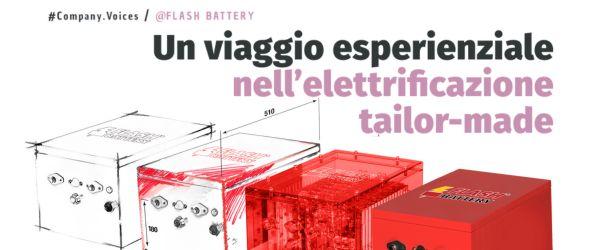
We are access equipment
Eine erlebnisreiche Reise in die maßgeschneiderte Elektrifizierung
Auf der Bauma 2025 führt Flash Battery die Besucher durch die Innovation von Lithium-Batterien auf eine immersive Reise, die den Designprozess, das fortschrittliche Managementsystem und maßgeschneiderte Elektrifizierungslösungen für den Bausektor enthüllt.
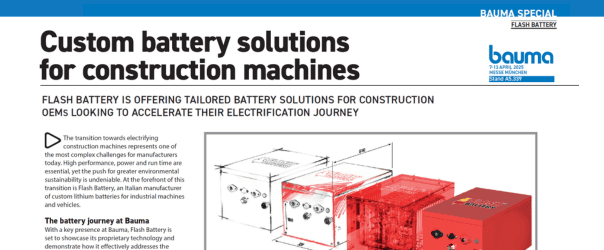
iVT International
Maßgeschneiderte Batterielösungen für Baumaschinen
Die Elektrifizierung von Baumaschinen schreitet rasant voran. Auf der Bauma 2025 präsentiert Flash Battery seine maßgeschneiderten Lithiumbatterien für die Branche durch eine eindrucksvolle Reise in seine eigene Technologie.

